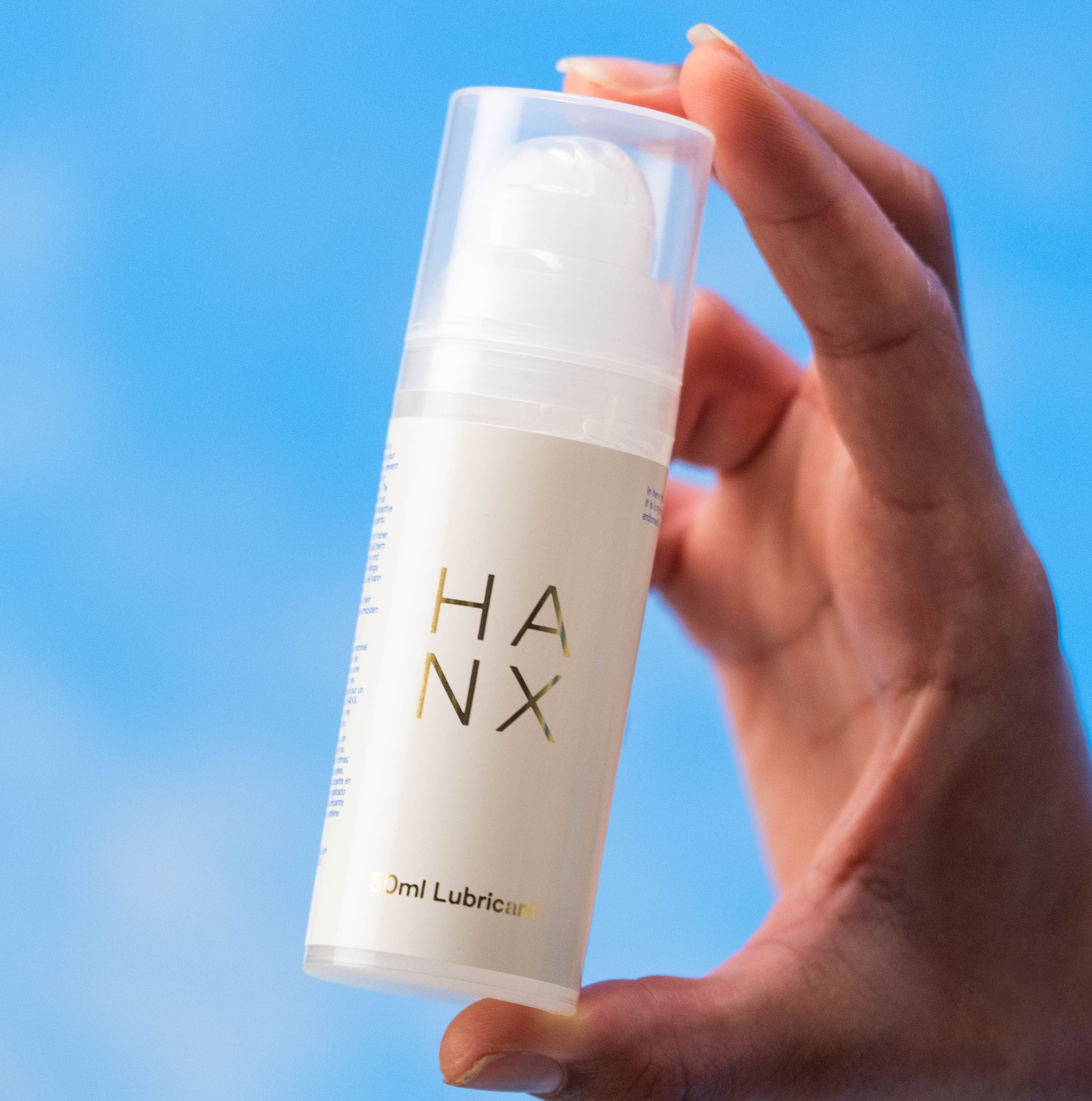Why The Male Birth Control Pill Highlights Double Standards In Contraception
HANX lovers, get set for some pretty massive news in the contraception world: a hormone-free male contraceptive pill has just passed its first human safety test. I’m Dr Sarah Welsh, HANX Co-Founder and a gynaecology doctor who spent years working NHS sexual health. I love helping people navigate birth control options (no wonder I’m building a condom challenger brand!), so feels like it could be a proper game-changer… but it’s also raising very valid questions, too. Join me as I explore the latest male contraception developments and why the trial process is sparking outrage over differing standards for women’s contraception and health…
The Double Standard That's Been Staring Us in the Face
Let me paint you a picture. Previous attempts at bringing male birth control to market stopped early because men experienced mood swings, acne, and changes to their sex drive. Sound familiar? These are literally the side effects that up to 1/3 of women using hormonal contraception report - and we're just expected to crack on with it. I've sat in countless birth control consultations where women have told me about:
-
Crippling mood swings that affect their relationships
-
Painful cystic acne that destroys their confidence
-
Loss of libido that impacts their mental health
-
Weight gain that makes them feel uncomfortable in their own skin
-
Anxiety and depression that wasn't there before
And unfortunately, given the lack of further research into women’s bodies, hormones and a new approach to contraception, there wasn’t a huge amount I could do apart from suggesting trying another variety of hormonal contraception that might better suit them and not carry these recognised side effects. Frustrating for patients and frustrating for me as a healthcare provider.
But when men in trials experienced these exact same issues? Trial stopped. Not acceptable. Back to the drawing board.
So, What Actually Is This New Male Birth Control?
Let’s get into the details. The new male contraceptive pill - known as YCT-529 - works completely differently to anything tried before. Previous attempts at male birth control have been, frankly, a bit of a fail. Instead of playing with testosterone levels, this little pill targets something called retinoic acid receptor-alpha in the testicles. Sounds complicated, but in essence, it’s like having a very specific switch that turns off sperm production without touching anything else. Fascinating and potentially huge for the future of contraception!
How's It Different From What We've Tried Before?
Previous attempts at developing a male contraceptive pill weren’t successful, as they'd suppress all the hormones needed for sperm production, which meant testosterone levels plummeted too. The new approach with YCT-529 is much more targeted:
-
It goes straight for the sperm production mechanism
-
Leaves testosterone levels completely alone
-
No injections or minor surgery required
-
Early studies suggest it's fully reversible
Now, the safety trial for this male contraceptive was pretty small - just 16 men taking the pill for 15 days. But the results were encouraging with no changes to their natural hormone levels, normal liver and kidney function, no impact on mood or sex drive or heart rhythm.
Sounds good? Hold up! Before you start jogging your fella down to the sexual health clinic, let’s put these results in context. We're talking about a tiny study over two weeks. We really need to see much bigger, longer trials before anyone can expect to nip to their local Boots to grab a pack...
What Are the Options for Men Right Now?
Currently, contraception for people who produce sperm boils down to:
Condoms - underrated but my absolute go-to recommendation. Condoms are about 82% effective with typical use (98% if you use them perfectly every time), they are the only form of contraception that protects against both pregnancy and STIs too and there are no side effects. If you do find that you’re itchy, sore, irritated or battling UTIs after using condoms, try switching to natural HANX condoms which don’t contain any harsh unnecessary chemicals, spermicides or anaesthetics.
Vasectomy - more than 99% effective and permanent, but it does involve surgery and if you change your mind, reversing it isn't guaranteed to work. Great if you're absolutely certain you don't want (more) children. You still need to use condoms after a vasectomy if you are at risk of STIs.
Why Are Standards Very Different for Women’s Health?
From a gynae doctor’s perspective, this news could be really positive in terms of sharing the responsibility of contraception. For instance, this could be huge for women who are dealing with endometriosis, PCOS, or other conditions that make hormonal contraception unsuitable. It also really is a step forward in cementing the concept that pregnancy prevention is a shared responsibility (not just something women take care of without any input or support from partners).
When the contraceptive pill was first developed in the 1960s, it was such a major step forward in giving women reproductive control that many were willing to accept disruptive side effects as part of the package. Whilst the pill formulation has changed and improved, it's become normalised that women simply have to put up with mood swings, weight gain, reduced libido, and other hormonal contraception side effects as part of efforts to prevent pregnancy.
The Real Impact of Hormonal Contraception Side Effects
I have to state here that each body is unique and what works for you might not work for someone else. Hormonal contraception has been genuinely life-changing for millions of women and it's given us control over our fertility, careers, and futures in ways our grandmothers could never have imagined.
However, pretending the side effects don't matter or aren't real is doing women a massive disservice. For those in the HANX community who have been shouldering the weight of preventing pregnancy at the expense of their skin, mood and sex drive, it’s very valid to feel frustrated that these side effects were a deal-breaker for previous attempts at developing a male contraceptive.
What We’d Like To See In Women’s Contraception
So, yes, this male contraceptive pill has the potential to be really positive - but it should also be sparking a much bigger conversation about contraceptive equity. Not just "when will this be available?" but "why have we accepted such different standards for male and female contraception?". I’d especially love to see a real, tangible shift when it comes to research funding. Historically, male contraception research has been massively underfunded compared to female options. This new development shows what's possible when we actually invest in the research.
So, Big Pharma, this should be the moment where you reevaluate existing contraceptive options for women - and find a solution that doesn’t come with debilitating emotional and physical side effects. We’re waiting…
Want more?
-
Why we launched the emergency contraceptive pill via the online clinic at HANX. Find out more.
-
Which progesterone-only pill is right for you? Explore your options.
-
Did you know herbal remedies can stop your hormonal contraception working? Here’s why.






















